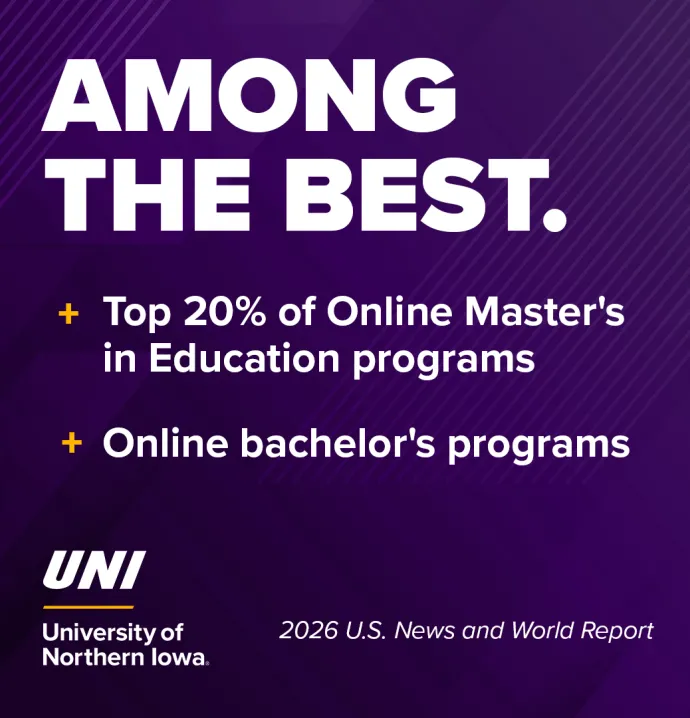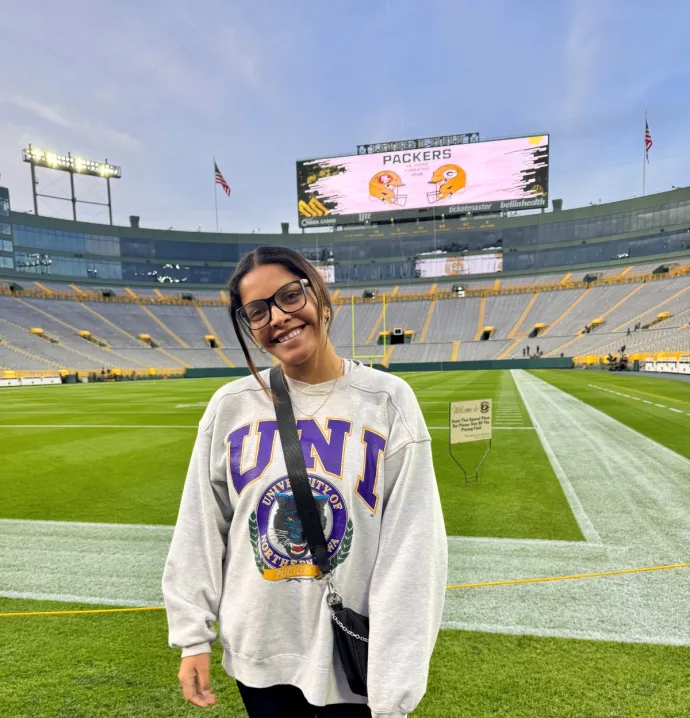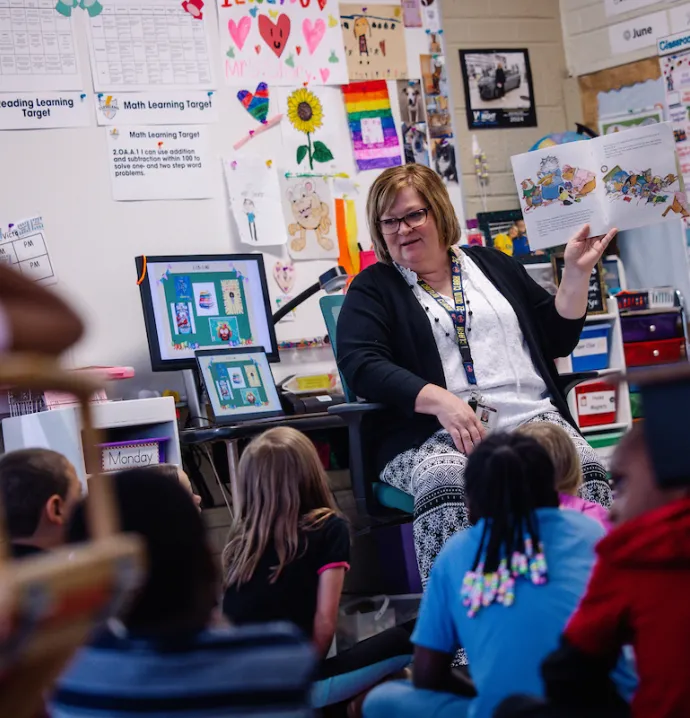The History of Distance: 25 Years of the Online Music Education Masters program at UNI
The History of Distance: 25 Years of the Online Music Education Masters program at UNI
The UNI School of Music is celebrating an important milestone, the 25th Anniversary of our Masters of Music in Music Education Distance Education program. We recently checked in with the very first graduate of the program, Ernest Reineke, who is currently in his 33rd year of teaching, and learned how the program was created and has impacted his incredible teaching career. We would love to share some perspective on not only how the program was developed, but also how the program has adapted and changed over the years.
It is not an exaggeration to say that Reineke was directly involved in the creation of the MM distance learning program. It was his idea! Reineke recalls, “In 1990, the University of Northern Iowa College of Education created an off-campus Master of Arts in Education degree program to be delivered in Estherville, Iowa. This was created to fulfill the need for teachers to achieve a higher education degree in a non-residency format. The program was administered when professors flew in a twin-engine airplane from Cedar Falls to the Estherville airport. The professors were driven to Iowa Lakes Community College where the program was implemented. My wife, Melodee Weisbrod Reineke (UNI, MAE, 1993), was in that experimental program. Each week I drove Melodee to Estherville for her to take classes, and I waited in the library writing curriculum for my teaching position at Algona, Iowa.”
Inspired by his wife’s non-resident program, Reineke contacted former UNI music professor Dr. Fred Rees. He inquired if there was the potential for music professors to travel with the MAE teachers to Estherville and create a non-resident Master of Music degree. The two investigated the possibility of running a concurrent program, but when enrollment projections fell short of making the off-campus program viable in Northwest Iowa, their discussions eventually led to a new degree plan with courses offered through the Iowa Communications Network (ICN). The ICN technology was still somewhat new at the time, but the technology provided a vehicle capable of delivering instruction to teachers across the entire state of Iowa, not just the Northwest region. While Dr. Rees worked on campus to create the degree program, Reineke helped recruit across the state. While waiting for approval, Reineke contemplated pursuing a graduate degree in administration. When the UNI degree was approved in 1993, he had to make a choice and ultimately enrolled in the degree he helped to create. He attended ICN courses at Iowa Lakes Community College and spent two summers in residency taking classes in Cedar Falls. Reineke became the first graduate of the program on December 20, 1996. He later fulfilled his other ambition and went on to earn his administrative endorsements from Buena Vista University.
Reineke, who currently teaches in Mason City, has gone on to have an amazing career. “Because of my degree from UNI, I have been able to be an adjunct professor at Iowa Lakes Community College, teaching music appreciation and music theory courses. My primary teaching career has included K-12 vocal music and 5-8 instrumental music. The depth of knowledge that I received at UNI has made me a much more superior teacher. The program is very rigorous, but that philosophy instilled into me that hard work is rewarded both for me personally, and for the students in my classroom. I do highly recommend the UNI master of music degree program because the professors do care about your success in both the classroom and your professional career. The courses are both challenging and fulfilling. I never felt there was ‘busy work.’ All of my classes meshed perfectly together and brought me to an even higher level of depth of knowledge from what I had learned in my undergraduate work at Northwestern College in Orange City, Iowa.”
The degree has transformed since its conception. The ICN network remained the primary vehicle of communication for many years, allowing students to drive a short distance to community colleges and other locations throughout the state to “attend” class. More recently, advancements in technology have allowed the degree to be delivered through interactive video conferencing methods and eLearning platforms. Students are now able to complete coursework and connect with their professors from home, creating even more flexibility. In fact, the website Intelligent.com recently listed our program in their ranking of “The Top 39 Online Master’s in Music Education Programs,” noting that we were the “most flexible.”
We are keenly aware that students’ needs are diverse and ever-changing. With that in mind, we are currently restructuring our distance learning MM Music Education program with intentions to enroll a new cohort in the summer of 2022. The newly designed program will address the needs of today’s music educators and is built with even more flexibility in mind; students will have the option to complete the coursework in a condensed 13 month format or spread over two years. There will also be thesis or non-thesis options, allowing students to tailor the program to meet their research goals. Courses will be taught by our full-time, permanent faculty members, each experts in their respective fields, who remain actively engaged in research and teaching at a national level.
Looking back on the history of the program, UNI has a lot to be proud of, and so does Reineke. “To see that this program has continued for twenty-five years is a testament to how progressive the School of Music is at UNI. To see that the program is now under review and enhanced to serve the university in the future shows the university’s commitment to forward planning and a growth mindset. I had mentioned to Dr. Michelle Swanson, UNI school of music professor, that Northwestern College gave me the foundation I needed to stand on to be the teacher I am today; but UNI gave me the wings to fly.
Editor’s note: thank you to Suzanne Hendrix-Case for her contribution of this article, with assistance from Ernest Reineke and Justin Mertz.




